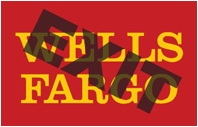Advertisement
What Does it Mean That the Largest Reverse Lender Has Exited the Business?

Wells Fargo Home Mortgage has announced that it will discontinue origination of Home Equity Conversion Mortgages (HECM), a U.S. Department of Housing & Urban Development (HUD) reverse mortgage program that was designed for senior citizens in 1987. Wells Fargo began originating reverse mortgages in 1990. As of 2010, the funded volume of reverse mortgage business was approximately 2.2 percent of our retail mortgage volume and represents about 1.2 percent of overall mortgage volume. In March, Wells Fargo discontinued offering its reverse mortgage programs to the wholesale channel.
According to Reverse Market Insight, Wells Fargo led the reverse mortgage market with a 26.2 percent share, nearly 10 percentage points ahead of the number two market share holder, Bank of America with a 17.4 percent share.
“Wells Fargo will continue to service the loans of existing (HECM) reverse mortgage customers,” said Franklin Codel, executive vice president, head of national consumer lending for Wells Fargo. “We will continue to provide options for seniors who wish to determine ways to access the equity in their homes.”
In a statement from the company, Wells Fargo stated that its1,000 reverse mortgage team members will be provided with opportunities to apply for other open positions within the company's 80-plus businesses. New reverse mortgage applications will not be accepted after Thursday, June 30.
“Reverse mortgages and HECM loans are readily available to seniors as an important tool to help them stay in their homes and to fund their longevity," said Peter Bell, president of the National Reverse Mortgage Lenders Association (NRMLA). "The decision by Wells Fargo that it will no longer originate new reverse mortgage loans does nothing to change this. The HECM program remains a relevant tool and the vast need for it continues."
Wells Fargo stated that the decision to discontinue reverse mortgage products was made based on the current unpredictability of home values, along with the restrictions associated with reverse mortgages that make it difficult to determine a senior's ability to meet the obligations of homeownership and their reverse mortgage (payment of property taxes and homeowners’ insurance).
“Wells Fargo Home Mortgage will be missed by the industry," said Bell. "The reverse mortgage professionals at Wells Fargo have been good corporate citizens, sharing knowledge, business insight, and educational resources. We wish them all the best as they transfer to new opportunities.”
About the author





